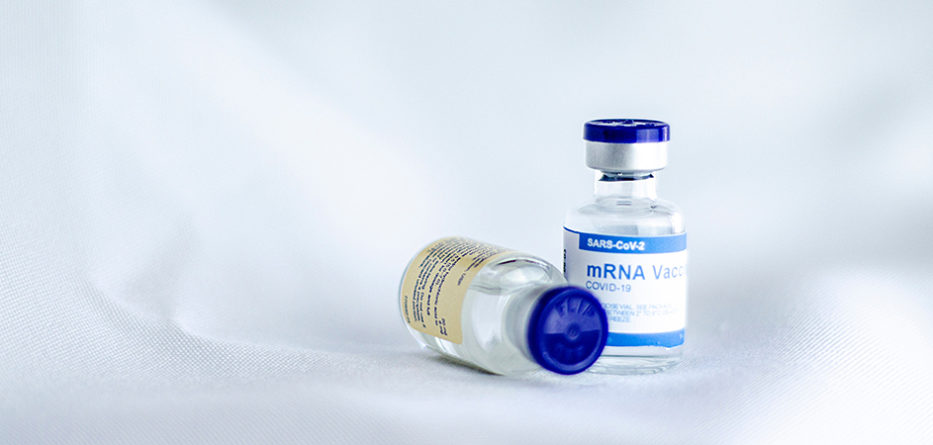AUSTRALIAN CATHOLIC BISHOPS CONFERENCE
Bishops Commission for Life, Family and Public Engagement
FAQS and Guidance for the Catholic community in Australia regarding a COVID-19 vaccine
April 2021
Key advice:
- Vaccination against COVID-19 is a morally good thing, and to be encouraged.
- While some or all COVID-19 vaccines currently available or intended to be made available in Australia are associated with ethically questionable production and research practices, it is morally permissible to receive any and all vaccines made available.
- The Catholic Church encourages governments to conduct all medical research and health delivery in moral ways, and to offer patients a choice of options.
- If you have medical questions about a vaccine, consult with your medical practitioner.
Related story: Catholics in Australia encouraged to receive COVID-19 vaccine.
Should I receive the COVID-19 vaccine?
The decision to receive any vaccine, including a COVID-19 vaccine, is a decision to be made in consultation with your doctor. This Q&A will provide information on moral matters relating to vaccines, but medical decisions are to be made with medical advice.
If a person decides, for reasons of conscience, to refuse a vaccine, they are morally obliged to do their utmost, by other protective means and appropriate behaviour, to avoid contracting COVID-19 themselves and to avoid transmission of the disease, particularly to the most vulnerable or to those who – for medical reasons – cannot be vaccinated.
If my doctor says it is safe for me to get the vaccine, do I have to get it?
In its Note on the morality of using some anti-Covid-19 vaccines, the Vatican’s Congregation for the Doctrine of the Faith is clear that “vaccination is not, as a rule, a moral obligation” and “must be voluntary”. No one should be coerced to receive any vaccine.
However, the Congregation for the Doctrine of the Faith goes on to say that the morality of vaccination is not only about your own health, but also the duty to pursue the common good by protecting the health of others, especially the weakest and most vulnerable.
One would therefore need a serious reason not to receive the vaccine.
Which vaccines are or will be available in Australia?
The Pfizer vaccine and the AstraZeneca vaccine are currently available in Australia. While the Pfizer vaccine and the initial doses of the AstraZeneca vaccine have been sourced from overseas, it is intended that 50 million doses of the AstraZeneca vaccine will be manufactured in Australia.
The Federal Government has also entered into an agreement for 51 million doses of the Novavax vaccine. The Novavax vaccine still needs to go through approval from the Therapeutic Goods Administration before being made available in Australia.
Information about available vaccines is updated and accessible from the Australian Government Department of Health: https://www.health.gov.au/initiatives-and-programs/covid-19-vaccines
What are the ethical issues surrounding the vaccines that will be available in Australia?
The HEK-293 cell line was used in the development, production and testing of the AstraZeneca vaccine. The HEK-293 cell line was used to test the efficacy of the Pfizer and Novavax vaccines, but not in their development or production.
The HEK-293 cell line was derived from the kidney of an aborted baby girl in the 1970s, and cell lines derived from these cells continue to be used in a broad range of scientific research, including in the production and testing of vaccines.
Given that all the vaccines available in Australia have some link to the HEK-293 cell line, is it ethical to use any of them?
Given the very remote connection of the cell line to its origins, a person may receive a vaccine that uses the HEK-293 cell line or any other cell line derived from aborted fetal cells in its production, development or testing. To do so would not be to co-operate in any abortion occurring in the past, nor would it be co-operating in further abortions occurring in the future, and so it can be received with a clear conscience.
However, some people may want to distance themselves as far as possible from the death of the child whose cells were taken to cultivate the HEK-293 cell line and from the fetal tissue industry, and wish to discourage the use of this cell line in future research and production, so would prefer to choose a vaccine that has as minimal a link as possible to this abortion.
Most Australians will probably have no choice as to which vaccine is made available to them. What does that mean for my responsibility to choose an ethically-sourced vaccine if one is available?
If it is possible for people to have a choice, then they should be given one, and we urge the Government to respect the consciences of Australians and allow them to make a choice in the vaccine they receive.
Where Australians are given a choice, the Congregation for the Doctrine of the Faith has said we should choose the least morally compromised vaccine. This would mean preferring the Pfizer or Novavax vaccine over the AstraZeneca vaccine.
Where Australians are given no choice, the Congregation for the Doctrine of the Faith has made it clear that “it is morally acceptable to receive COVID-19 vaccines that have used cell lines from aborted fetuses in their research and production process.”
Therefore, if you are only offered one option, you may receive whichever vaccine you are offered, including the AstraZeneca one, with a clear conscience.
I am concerned about the speed at which these vaccines have been developed, and about reports of adverse reactions. Are these vaccines safe to take?
The Australian Technical Advisory Group on Immunisation (ATAGI) recently recommended “that the COVID-19 vaccine by Pfizer (Comirnaty) is preferred over COVID-19 vaccine AstraZeneca in adults aged under 50 years”.
These are matters to be discussed with your medical professional; it is not the role of bishops to advise on the safety or efficacy of vaccines.
I have heard that the effect on fertility is yet unknown. I am a woman of child-bearing age. Should I hold off on getting the vaccine?
This is a matter to be discussed with your doctor.
What happens if the doctor won’t tell me what vaccine I’m getting?
It is a basic principle of both medical ethics and medical law today that the patient has a right to information about any medication before it is administered to them, so that they can provide free and informed consent.
The Australian bishops have been assured by the Australian Government that doctors will be transparent and open with their patients, and that Australians will continue to be able to receive clear answers to questions they have about any health product they are receiving, including vaccines.
Final note
Catholics and their families have a right to clear and accurate information about vaccines. The bishops remind everyone that we have a duty of care to the most vulnerable. Exercises in misinformation, unbalanced sharing of facts or fear-mongering, whether by electronic communications or other means, are not appropriate and are inconsistent with our Christian commitment to truth and mercy.
Approved by
Archbishop Peter A Comensoli
Chair, Bishops Commission for Life, Family and Public Engagement
With thanks to the ACBC.








